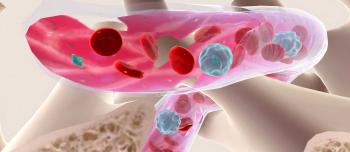Genentech, a member of the Roche Group has announced interim results from their phase III HAVEN 2 study, designed to evaluate the prophylaxis use of emicizumab (ACE910) in children less than 12 years of age with hemophilia A and inhibitors to factor VIII (FVIII).
While emicizumab was created by Tokyo-based Chugai Pharmaceutical Co., Ltd., it is being co-developed by Chugai, Roche and Genentech for the prophylactic treatment of people with FVIII deficiency, or hemophilia A, both with and without inhibitors. Unlike existing treatments, which require intravenous injections, emicizumab is administered subcutaneously via an injection just under the skin.
Emicizumab is a laboratory-engineered protein that works by performing a key function in the clotting cascade that is normally carried out by the FVIII protein, which is deficient in individuals with hemophilia A. The “cascade” is an intricate series of chemical and molecular reactions between clotting factors that lead to clot formation. In this case, emicizumab binds to and bridges two other key clotting proteins, activated factor IX and factor X, important components of the cascade normally performed by FVIII.
An interim analysis after a median of 12 weeks of prophylaxis with emicizumab showed a “clinically meaningful” reduction in the number of bleeds over time. The findings are consistent with results from the phase III HAVEN 1 study in adults and adolescents (12 years of age or older) with hemophilia A and inhibitors to factor VIII, in which emicizumab prophylaxis showed a statistically significant and clinically meaningful reduction in the number of bleeds over time compared to no prophylaxis, as well as compared to prior prophylaxis with bypassing agents. The most common adverse events with emicizumab in the HAVEN 2 study were injection site reactions and nasopharyngitis (common cold symptoms).
Additional HAVEN phase III studies are ongoing to evaluate different emicizumab prophylactic treatment regimens.
“Managing hemophilia A with inhibitors to factor VIII is especially challenging for children and their caregivers, because bleeding is difficult to control and current treatments require frequent intravenous infusions,” said Sandra Horning, MD, chief medical officer and head of Global Product Development. “We are encouraged that once-weekly subcutaneous emicizumab prophylaxis showed a clinically meaningful reduction in the number of bleeds over time in children and are pleased to share these results with the community as we join in celebrating World Hemophilia Day.”
Source: Genentech press release dated April 16, 2017





